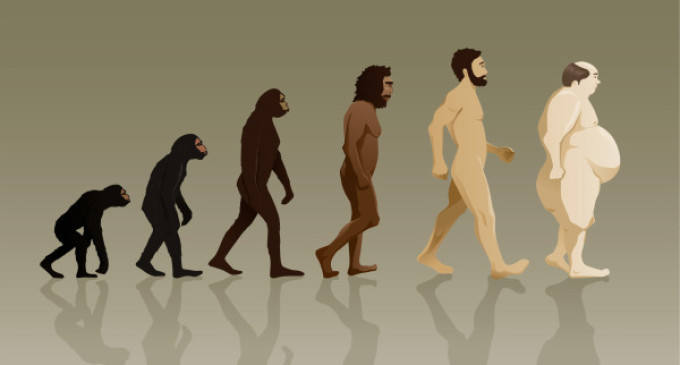New Study Links Paleo to Weight Gain

The fad diet we know as “Paleo” purports to be based on what early humans ate. The diet consists mainly of fish, meat, fruit, and vegetables and excludes grain, dairy, and processed foods. A new study shows that a low-carb, high-fat (LCHF) diet can actually lead to health complications and weight gain in just 8 weeks.
These surprising findings, detailed in the journal Nutrition and Diabetes, have prompted researchers at the University of Melbourne to issue warnings about putting faith in diets with little scientific evidence as to their health benefits.
I am not alone in the argument that early humans probably weren’t healthy at all. The hunter-gatherer life left humans with little variety in their diets and a high probability for nutritional deficiencies, not to mention a lack of reliability as to when food would be available.
While a diet consisting mainly of meat may be great if you spend all day tracking and hunting a buffalo, the Paleo diet is not at all appropriate for individuals who are overweight and sedentary (unfortunately this describes a big portion of today’s society).
Lead study author Sof Andrikopoulos argues that mass media hype around Paleo and other fad diets leads more and more people to attempt eating patterns that are not healthy. The Paleo diet can be downright dangerous for diabetics and for those at risk for developing diabetes, he says.
“Low-carbohydrate, high-fat diets are becoming more popular, but there is no scientific evidence that these diets work. In fact, if you put an inactive individual on this type of diet, the chances are that person will gain weight,” explains Andrikopoulos, President of the Australian Diabetes Society.
“There is a very important public health message here. You need to be very careful with fad diets. Always seek professional advice for weight management and always aim for diets backed by evidence.”
Scientists at the University of Melbourne decided to test the efficacy of a LCHF diet with a focus on how it would affect pre-diabetics. The study involved two groups of overweight mice with diabetic symptoms. Group 1 followed a LCHF diet. Group 2 maintained a normal mouse diet with 3% fat. The LCHF diet was 60% fat with a 20% reduction in carbs.
The mice were tested eight weeks later. Researchers found that mice in Group 2 had experienced:
• Weight gain (equal to 15% body weight)
• Increased glucose intolerance
• Increased insulin levels
• A doubling in fat mass
If we equate these effects to a 220 lb. human, that’s like gaining 33 lbs. in just two months. “That’s extreme weight gain,” says Andrikopoulos.
“This level of weight gain will increase blood pressure and increase your risk of anxiety and depression and may cause bone issues and arthritis. For someone who is already overweight, this diet would only further increase blood sugar and insulin levels and could actually pre-dispose them to diabetes.”
“We are told to eat zero carbs and lots of fat on the Paleo diet. Our model tried to mimic that, but we didn’t see any improvements in weight or symptoms. In fact, they got worse. The bottom line is it’s not good to eat too much fat.”
Andrikopoulos added that the “Mediterranean diet” is best for diabetics and pre-diabetics. “It’s backed by evidence and is a low-refined sugar diet with healthy oils and fats from fish and extra virgin olive oil, legumes and protein.”










